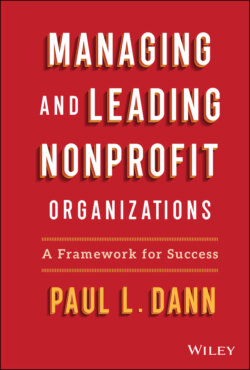Читать книгу Managing and Leading Nonprofit Organizations - Paul L. Dann - Страница 13
Sixth Practice Perspective: Awareness
ОглавлениеAs a leader it is essential that you work to develop your own capacity for self‐awareness. Awareness, however, can be a funny thing. Most people believe that they possess a high degree of self‐awareness. Generally, the realization that one is lacking in awareness comes when someone points it out (and even then, we often resist taking this input) or in an instance when the individual is caught unaware. In a way awareness is like getting out on the ice in the winter. First you look to see if the ice seems thick enough and once you have determined it is “all good,” then you venture out to the center of the pond. It is only when you start to hear the sound of cracking ice that you suddenly realize that you are in serious trouble and you've been caught unaware. You turn and run as quickly as possible, hoping and praying that you do not fall through.
Given the sometimes‐allusive nature of awareness it is especially important to continually work to refine your own self‐awareness as well as the awareness held by your team members. Meta‐thinking is one way to help advance your own awareness. Meta‐thinking is in effect thinking about thinking. Take time to consider what you are thinking and feeling and how your thoughts and feelings are connected to support or alternatively take away from the leadership practice you hope to develop.
Awareness can also be developed through effective feedback processes with colleagues, supervisors, and individuals whom you trust. Having the ability to seek and receive feedback provides a growing opportunity for you to expand your self‐awareness. The best feedback is feedback that is solicited (you have asked for it), based on observation (about your work and/or performance), and nonjudgmental. It is also based on something that the receiver can do something about, it is checked for accuracy, and it is delivered in a way that is both timely and yet sensitive to the when and where. Giving feedback to someone in a large meeting about their performance is clearly less effective than providing the individual with the same information in a one‐on‐one meeting. Similarly, providing feedback in close proximity to the precipitating event or situation is more effective than putting it off.
Giving and receiving feedback can be challenging as it often requires that we work in an antigravitational way. Our culture often says “Forget about it” even though we know that feedback, when it is done well, will help the individual to develop their skills and capabilities. It is important to resist the temptation to put off providing feedback, or worse, to skip it because you have decided it is not worth the hassle. When you avoid feedback, you will soon see that things can go from bad to worse. Think for example of the splinter you have put off removing. It does not take long before you risk infection.
